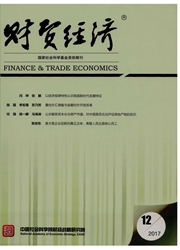

 中文摘要:
中文摘要:
本文利用29个新兴市场国家(地区)的数据分别对影响FDI和短期资本流动的因素进行实证分析,结果显示美国货币供给数量越大,流入新兴市场国家(地区)的FDI和短期资本越多;新兴市场国家(地区)利率越高,越能够吸引FDI和短期资本流入;新兴市场国家(地区)货币升值幅度越大,短期资本流入数量越大,但会抑制FDI流入;通货膨胀率上升导致FDI流入减少;投资风险水平越高,越不利于FDI和短期资本流入。这些结论带来的启示是:美国量化宽松货币政策给新兴市场国家(地区)资本流动带来巨大影响,短期资本流入、汇率升值、通货膨胀率上升等问题交织在一起,新兴市场国家(地区)在实施提高利率、减少货币供给量等政策时必须权衡利弊,综合考虑以上因素。
 英文摘要:
英文摘要:
Using data of 29 emerging markets, this paper empirically analyzes the factors influencing FDI and short-term capital flow. Results show that. (1) the more the money supply of the U. S. , the more short-term capitals flowing to emerging market countries/regions; (2) the higher the interest rate of the emerging countries/regions is, the more FDI and short-term capitals can be attracted; (3) the higher increase of currency appreciation of the emerging countries/regions, the larger amount of short-term capital and less FDI~ (4) the increase of inflation leads to the decrease of FDI; (5) increased investment risks prevent FDI and short-term capital from flowing in. The paper concludes that quantitative easing monetary policy of the U.S. has great impacts on capital flow of the emerging countries/regions. Due to the interweave of issues such as short-term capital flow, appreciation of exchange rate and inflation, the paper suggests that emerging countries/regions should take all those factors into consideration in carrying out policies of increasing interest rates and decreasing money supply.
 同期刊论文项目
同期刊论文项目
 同项目期刊论文
同项目期刊论文
 期刊信息
期刊信息
